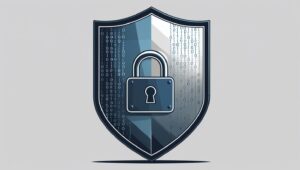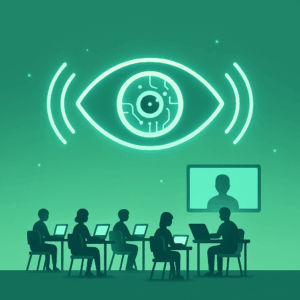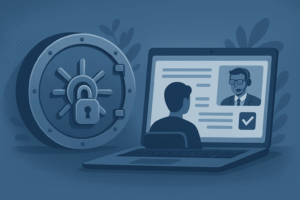The rise of online education has brought numerous benefits. Right from increased accessibility and flexibility to a wider range of course offerings. However, these benefits also come with significant challenges, such as the growing threat of a contract-cheating economy. Contract cheating is when students pay someone else to complete academic work on their behalf, such as hiring a ghostwriter to write an essay or purchasing a pre-written assignment. While contract academic cheating has been a problem in traditional face-to-face education, the online environment has created new opportunities for individuals and companies to profit from this unethical practice. This blog will explore the threats of contract cheating in the online education economy and discuss potential solutions, like proctored assessment.
What is Contract Cheating in Online Testing?

Contract cheating in online assessment is when a student hires someone else to complete an online exam, assignment, or any other assessment on their behalf. There are various ways in which students are using contract cheating to cheat on online tests and other forms of academic assessments. Here are some of the most common methods:
Paying Someone Else to Take the Test: Students can hire someone else to take an online assessment test. This is possible through websites offering this service or finding individuals willing to take the test for a fee.
Sharing Login Details: Students may share their login details with someone else, such as a friend or family member, who then takes the test on their behalf.
Using Online Resources During the Test: Students may use online resources, such as search engines or textbooks, during the test to find answers. Such malpractice happens when someone else searches for the answers and provides them with real-time solutions. Alternatively, by having pre-written responses to copy and paste.
Using Advanced Technology: Some students may use advanced technology, such as virtual private networks (VPNs) or hacking tools, to cheat on online tests. Test takers practice this by accessing the test from a different location, bypassing security measures, or accessing test answers or questions.
Purchasing Pre-written Essays or Answers: Students may also purchase pre-written essays or answers to test questions from online vendors or websites that offer these services. Ultimately students use this material as their work for academic submissions.
Effects of Contract Cheating?
A contract cheating economy, which involves hiring someone else to complete academic work on a student’s behalf, can significantly negatively affect online learning and testing. Here are some of the ways that contract cheating can impact these areas:
Diminished Learning: When students outsource their work to others, they miss out on the opportunity to engage with the material, develop important skills, and deepen their understanding of the subject matter. This can result in a diminished learning experience. Also, it limits their ability to apply the knowledge gained to future academic or real-world settings.
Undermined Integrity: Contract cheating undermines the integrity of the online learning and testing environment. It can also devalue the accomplishments of those who engage in honest work. It becomes harder to distinguish between those who have worked hard and those who have cheated.
Reduced Assessment Validity: When students cheat on assessments, it can skew the results and reduce the validity of the evaluation. This can be especially problematic in online assessment. It can be difficult to detect academic cheating and ensure the integrity of the results.
Inflated Grades: When students cheat, they can earn inflated grades that do not accurately reflect their mastery of the subject matter. This can lead to false confidence and an inability to succeed in future courses or real-world situations.
Academic Dishonesty: Contract cheating is a form of academic dishonesty and can result in disciplinary action from the school or university. This can damage reputations, loss of scholarships or financial aid, and even cause expulsion.
Academic dishonesty undermines the integrity of online learning and testing environments and can negatively affect students’ academic and professional futures. Institutions need to take proactive steps to prevent and detect contract cheating. Also, students must understand the importance of academic integrity and the consequences of academic dishonesty.
Ways to Mitigate Contract Cheating
There are several strategies that institutions can implement to mitigate contract cheating in online learning and testing. Here are some of the most effective methods:
Promote Academic Integrity: Institutions can promote academic integrity by educating students about the importance of honesty, the consequences of cheating, and the value of hard work. This is possible through orientation sessions, workshops, and online tutorials.
Design Effective Assessments: Assessments that require higher-order thinking and personal reflection are more difficult to cheat on. By designing assessments that require original thinking and critical analysis, institutions can reduce the likelihood of contract cheating.
Use Anti-Plagiarism Software: Anti-plagiarism software can detect contract cheating and plagiarism. Institutions can use these tools to ensure submitted work is original and not copied from other sources.
Employ Remote Proctoring Services: Online monitoring software can observe students during exams and detect instances of cheating. Proctoring services use various technologies like webcams and screen sharing. Specifically, they ensure that the student taking the online proctored assessment is the person enrolled in the course.
Monitor Discussion Boards and Online Collaboration: Institutions can monitor discussion boards and online collaboration to detect collusion or sharing of answers. Monitoring software can detect when students share solutions or work together on assignments.
Establish a Culture of Honesty: Institutions can establish a culture of honesty by fostering open communication between students, faculty, and staff. Encouraging students to report cheating can help create a culture where cheating is a non-negotiable offense.
How is Online Proctoring Useful Against Contract Cheating?
Online exam monitoring system is useful in preventing and detecting contract cheating in online learning and testing. Here are some ways that online proctoring can be effective:
Deterrence: The knowledge that exams are being monitored can deter a contract from cheating. Students are less likely to engage in cheating behaviors. Especially when they know they are under a watch and cheating has consequences.
Identification: Online proctoring can help identify cheating by monitoring students’ behavior during exams. Proctoring services use various technologies, including webcams and screen sharing, to monitor students’ behavior and detect suspicious activity.
Verification: Online proctoring can verify the identity of the person taking the exam. Proctoring service compares the student’s photo identification with the video feed from the webcam. It can confirm that the student taking the exam is the person who has the enrollment in the course.
Real-time Intervention: Online proctoring allows for real-time intervention when cheating is detected. Proctors can alert faculty and staff when suspicious behavior is detected, allowing them to take action and prevent further cheating.
Reduced Risk of Collusion: Exam monitoring software minimizes the risk of collusion, which occurs when students work together to cheat on an exam. Proctoring services can detect when students share answers or work together on assignments, preventing collusion.
Summing Up
In conclusion, the threat of contract cheating in online education is a complex problem that requires a multifaceted solution. Educators, institutions, and policymakers must work together to develop and implement effective strategies to prevent and detect contract cheating. These strategies include using plagiarism detection software, implementing academic integrity policies and procedures, and increasing student awareness and education. Ultimately, it is important to prioritize academic integrity and ensure that students are held accountable for their learning and success. We can create a fair and ethical online education ecosystem that benefits everyone involved by working together.











